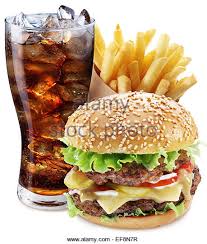
Learn more about how our modern lifestyles affect both fertility and the health of our children in my book, Conversations with my Daughter: How to Have a Healthy Baby.
Order your paperback copy today from True Medicine or e-book from Balboa Press.
Infertility rates are on the rise with more couples opting to try IVF. Sadly, even this avenue proves unsuccessful and, despite medical testing, the reasons remain a mystery.
However, we need to consider that the male sperm carries a lot of information in addition to the genetic details. Much of how a sperm behaves is located in the head which is relatively unprotected and susceptible to oxidative damage. When you consider that the information regarding early cell division and implantation relies on a healthy sperm, antioxidants and membrane health become a very important factor.
While there are certain nutritional supplements available that help to support healthy sperm quality, these need to be taken for six months in order to achieve improved sperm motility, sperm concentrations and sperm volume, not to mention healthy ‘information’ to help with the vitally important early cell division. The reason for this time frame is because sperm take three months to develop and mature. Therefore, a period of six months is recommended for men to prepare their bodies (and their sperm) for conception, a viable pregnancy and a healthy baby.
How lifestyle impacts on male fertility
Lifestyle factors can reduce optimal male reproductive health and are often reversible:
 |
Smoking: sperm concentrations in male smokers are 13-17% less than in non smokers. |
 |
Chronic alcohol intake: affects male hormones and has a detrimental effect on semen quality and levels |
 |
Advanced Paternal Age (APA): is from 35-50 years in males, with an age-related decline in semen volume, normal sperm morphology, sperm count and an increase in DNA fragmentation. APA is associated with lower pregnancy rates and spontaneous abortion. |
 |
General heat stress: Cycling as a sport has a strong association with increased testicular heat and subsequent oxidative stress. A study of male road cyclists found suppressed sperm parameters after a 16-week trial. |
 |
Unhealthy diets: consisting of processed foods such as cereals, breads; processed or deli meat; dairy; alcohol; coffee; soft drinks and low fresh fruit and vegetable intake are associated with poor semen quality and lower fecundity rates. |
 |
Exposure to Electromagnetic Frequencies (EMF) may alter both DNA and cellular integrity, as well as causing heat stress. Keep all electronic equipment well away from your lap.
https://techwellness.com/blogs/expertise/laptop-rf-radiation-danger-protection-from-emf |
 |
Environmental chemicals including herbicides, pesticides, petro-chemicals, paints, solvents. Select only organic, unsprayed produce and animal products that come from unsprayed pasture-fed farms. |
Nutrients and supplements available to help support healthy sperm quality are not listed here as a proper health assessment is recommended. It is not beneficial to self-prescribe and obtain possibly inferior or incorrect products.

